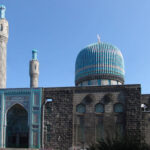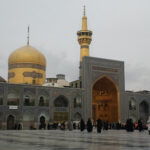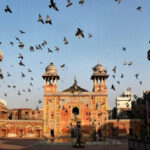➖➖➖
RAMADAN AND WOMEN
➖➖➖
EPISODE 2️⃣ – AFFAIRS THAT PREVENTS FASTING (A)
➖➖➖
There are certain state of affairs that prevent a woman from performing some certain Ibadah such as praying, fasting etc. Among these conditions are as explained below.
1️⃣ HAYD (MENSTRUATION)
Menstruation is the bleeding of the vagina that girls that have attained puberty go through every month.
Mu’adhah (رضي الله عنها), reported: I asked Aisha (رضي الله عنها), “Why do menstruating women make up missed fasts but not missed prayers?” Aisha ( رضي الله عنها ) said, “When we were afflicted with menstruation, we were ordered to make up missed fasts but not missed prayers.”
[Sahiḥ Muslim 335]
At-Tirmidhi said, “The people of knowledge acted upon this and we do not know of any disagreement between them, that a menstruating woman makes up her missed fasts and does not make up her prayers.”
[Sunan al-Tirmidhī 787]
Scholars unanimously agree that it is forbidden for a menstruating woman to fast, and that she has to make up (i.e. fast the missed days later) the days that she misses because of menstruation if that was an obligatory fast, as in Ramadān. They also agreed that if she does fast, her fast is not valid.
Therefore, a woman during the month of Ramadan will abstain from fasting until she has become pure i.e. she no longer sees any form of menstrual blood. Although during this period she can perform other acts of ibadah such as saying adhkar, giving sadaqah, etc.
_
2️⃣ NIFAS (POST-NATAL BLEEDING)
Post-natal bleeding is the blood that discharges from the vagina after a woman gives birth to a baby.
Although there is no minimum duration for nifaas. If a woman’s nifaas (postpartum bleeding) ends after giving birth, even after only a few days, then she should do ghusl and pray and fast.
Shaykh Ibn ‘Uthaymeen (رحمه الله) said:
When a woman becomes pure [i.e., the bleeding ends], even if it is only one day or a few days after giving birth, then she is pure and she must pray; her fasting is valid and it is permissible for her husband to have intercourse with her.
[Fataawa Noor ‘ala ad-Darb by Ibn ‘Uthaymeen].
Regarding fasting the same ruling for a menstruating woman applies to a woman in nifas.
She does not fast until she becomes pure.
NOTE
Shaikh Ibn Uthaymeen (رحمه الله) said regarding discharge: “The sign of purification is known amongst the women, and it is a white fluid that comes out once the menstrual period stops. Some women do not have this fluid, so she remains until the second menstrual period without seeing this fluid. So the sign of her having become cleansed is that if she inserts some white cotton, meaning; she enters it to the place of the menstruation, then she takes it out and it does not change, then it is a sign of her having become cleansed.”
[Sharh al-Mumti’ 1/498]
May Allāh (ﷻ) guide us to do that which is right and forgive our shortcomings…
أمين يا رب العالمين
===========================================
🕋 ISLAM GENERATION DA’WAH GROUP
For more Islamic reminders, check out:
WhatsApp: https://chat.whatsapp.com/2QBrhJi4uOAIHVtAockqgT
YouTube: https://youtube.com/IslamGen
Website: https://www.IslamGen.com
Visits: 0















